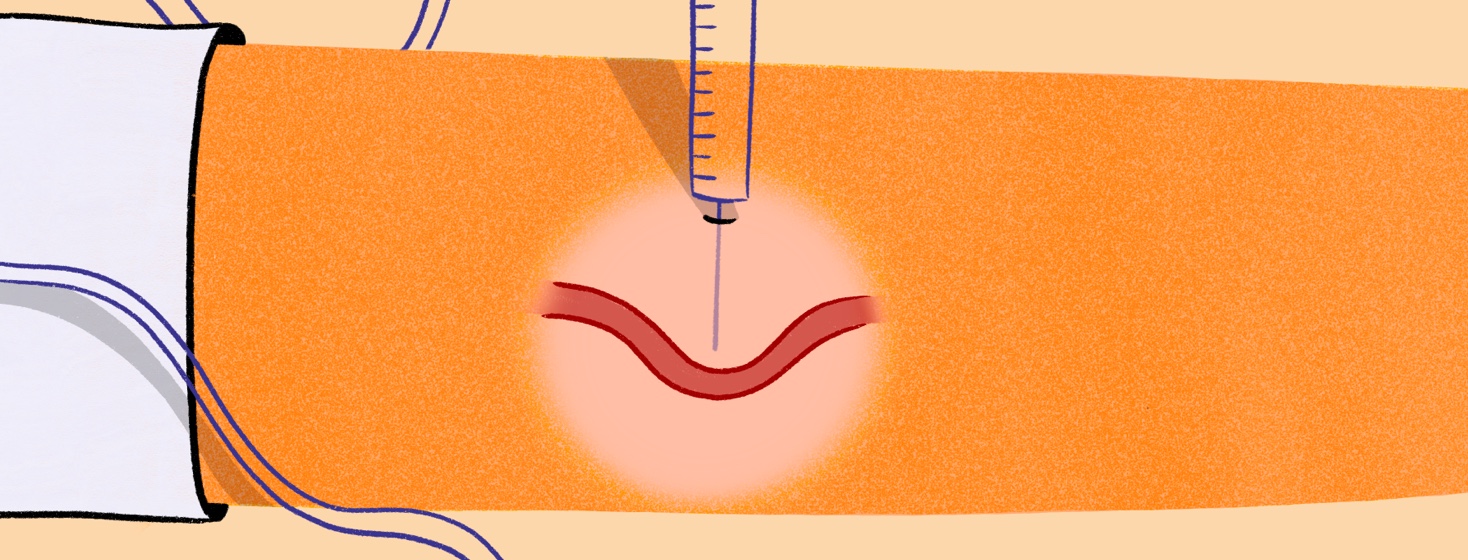Preparing for a Complete Blood Count
"She's difficult!" I overheard the phlebotomist say while looking at my arm.
WHAT?! I thought. I just said, "Good morning," when I sat down. That's all I said.
Is it me or my veins?
"She doesn't mean you are difficult, hon!" the other phlebotomist laughed. "She is talking about your veins.
A phlebotomist is a trained professional who performs blood draws on children and adults. Veins are blood vessels in the circulatory system that carry blood toward the heart.
Why are my veins problematic? Some people are inclined to have troublesome veins genetically. Veins also start contracting as we age.
The staff in the Oncology Lab at Utica Park Clinic in Tulsa, Oklahoma, are the best! When my 94-year-old mother was in the adjacent hospital, the nurse had difficulty finding Mother's vein. I hated watching her repeatedly sticking Mother and almost said, "Could I run across the street to get Tracy in the Oncology Lab? I know she can find a vein." Finally, the nurse could locate a vein in Mother's hand. Ouch!
You might have guessed. My mother was severely dehydrated. Veins can collapse or roll when that happens, making them too small to find.
Hydrate your veins!
Blood is approximately 92 percent water, and the water you drink hydrates your veins. Water pumps up the veins, making them more accessible for the phlebotomist to see.
Because of my blood cancer, I have a complete blood count (CBC) monthly. A CBC is a blood test. It examines various conditions, including anemia, infection, and leukemia.
A CBC measures the following:
- Red blood cells, which carry oxygen
- White blood cells, which fight infections
- Hemoglobin, the oxygen-carrying protein in blood cells
- Hematocrit is the amount of red blood cells in the blood
- Platelets, which help the blood clot
You can't study for a blood test, but here are some preparation suggestions.
- Drink 64 ounces of water throughout the day before and a glass of water (16 ounces) before your CBC. We should drink plenty of water even when we aren't scheduled for a CBC!
- My oncologist told me it isn't necessary to fast before my CBC. Some research, however, shows it is best to avoid drinking coffee before your CBC. Caffeine is dehydrating.
- Wear a short-sleeved garment or a sleeve you can roll up. Usually, the phlebotomist will stick you near the bend of your elbow.
- It helps me to squeeze a small ball in my hand while the phlebotomist finds the vein in my arm.
I was diagnosed with myelodysplastic syndromes (MDS) in 2017. MDS is a rare blood cancer caused by bone marrow failure. So, I have had monthly complete blood counts for the last six years. The CBC appointments are bearable because of the good people in the oncology lab at Utica Park in Tulsa. They are friendly, professional, and knowledgeable.
I recently read a quote from Dr. Amy Morris. She said, "Cancer is the worst way to meet some of the best people." You said it, doc, even when you have difficult veins!

Join the conversation